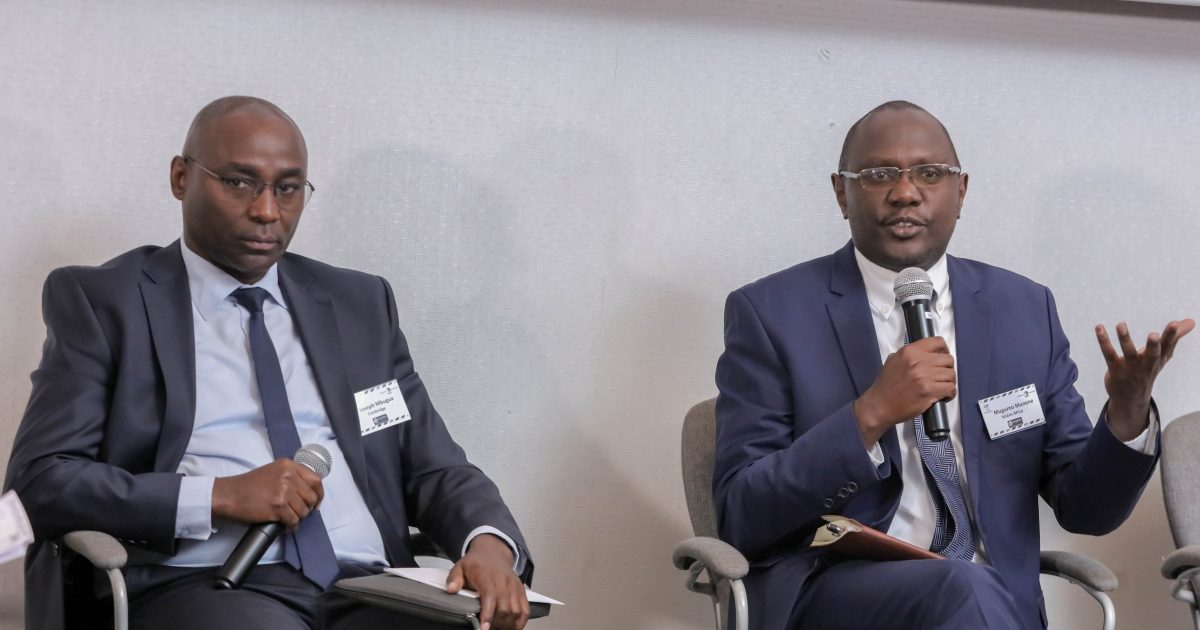Kenya Association of International Schools (KAIS) in partnership with Kodris Africa and Rusinga School held a symposium to sensitise stakeholders on the value of teaching computing skills in primary and secondary schools.
Speaking at the symposium at a Nairobi hotel, KAIS Chairperson, Wairimu Njage stated that the education sector has experienced significant turbulent change and the engagement with digital skills will play a role in driving innovation in different economic sectors.
“We as KAIS remain committed to making a contribution that makes education offered in Kenya remain dynamic and relevant in preparing global citizens,” said Mrs Njage.
The event delved into the computing and coding curriculum and the importance of incorporating digital skills in primary and secondary schools.
It is projected that by 2030, 50 – 55 per cent of all jobs in Kenya will require some level of digital skills with the demand being primarily driven by enterprises adopting digital technologies.
It is against this backdrop that KAIS convened a digital skills symposium that brought together various stakeholders from the education and ICT sectors. Present also were tech giants Microsoft, Google Safaricom and Liquid Telcom among others.
At the same time, Head of Google in Africa Jack Ngare said the only way Kenya and Africa are going to stay at par with developed nations is by introducing coding at the elementary level of schooling.
“Coding is one of the fundamental building blocks in IT and empowering our people to be able to understand and build some of the technological products that we consume that is why we need to start teaching coding in this country at zero option,” emphasised Ngare.
Managing Director, Microsoft Africa Development Centre Catherine Muraga while making her remarks said coding has become so central to all career paths.
“The need to teach learners how to solve problems through coding, as it has become a lot more important that we have to pay attention and make sure our children are well equipped for efficiency and productivity,” she added.
In addition, Kodris Africa CEO, Mugumo Munene emphasised the importance of teaching learners more than just how to use computer applications.
Munene explained that coding involves translating instructions for a computer from human language to a language a machine/computer can understand and technologies that humans have come to rely on such as smartphones, ATM cards, mobile money, Internet banking, e-learning, and telemedicine all run on codes.
“If you talk to experts, they will tell you that the younger you start learning how to code, the better it is in a world which is so connected and children need to learn digital skills such as coding from an early age,” stated Munene.
He further stated that Kodris Africa is the only organisation offering a curriculum approved by the Kenya Institute of Curriculum Development (KICD) to teach coding in schools.
“The curriculum we have developed is not necessarily for one segment of schools, it is cross-cutting and can be deployed by public schools, private schools and international schools,” added Munene.
Speaking on behalf of KICD, the Assistant Director of e-Learning, Charles Munene said that in the last two decades, curriculum reforms have been driven by rapid technological and social changes.
“Coding is becoming the most in-demand job skill of the future, therefore, we must align our curriculum to this rising demand in the job market,” he said.
He pointed out that countries like the US, China, England, Germany and France among many others in the developed world have already made coding compulsory for grade-one learners.
By Lorna Mukami





